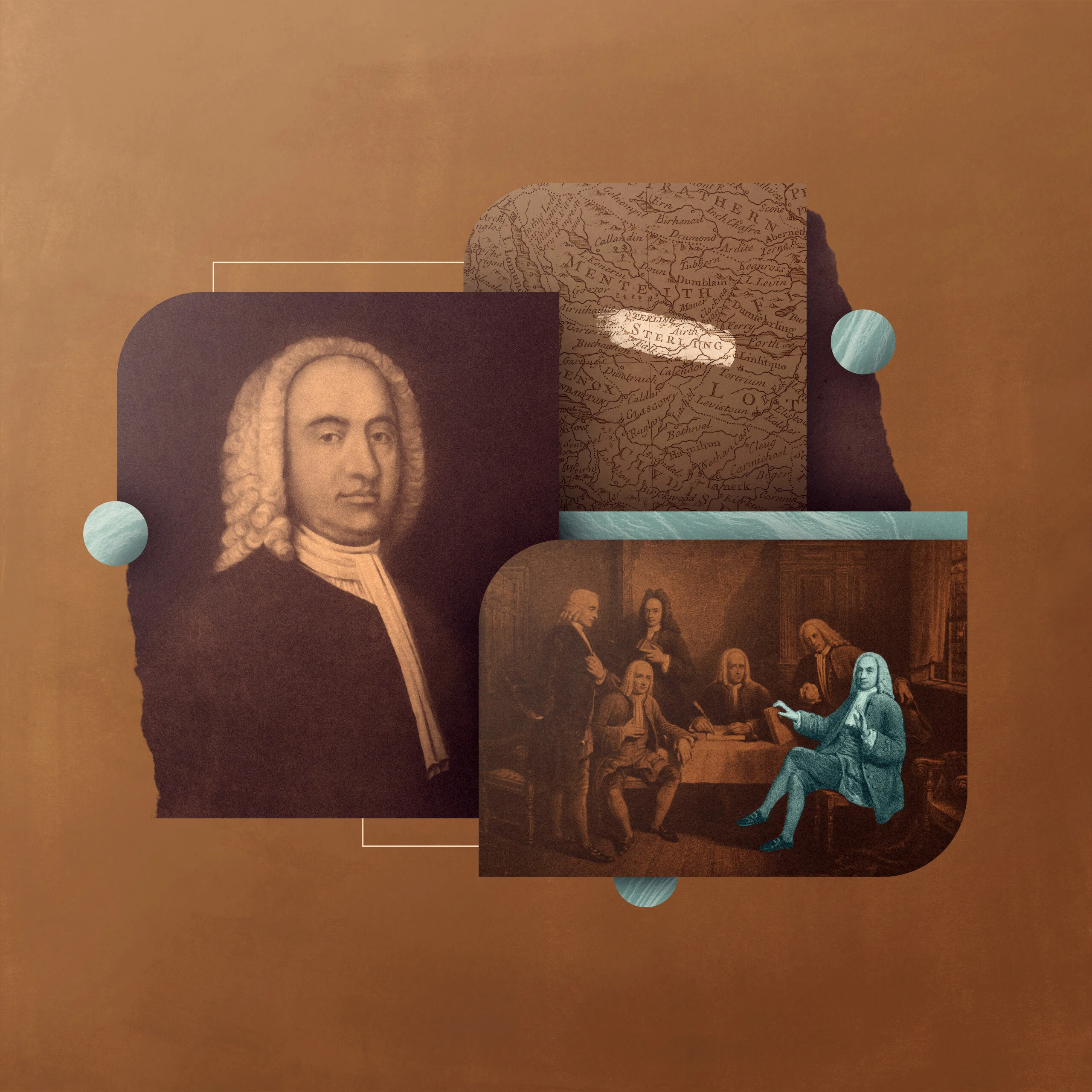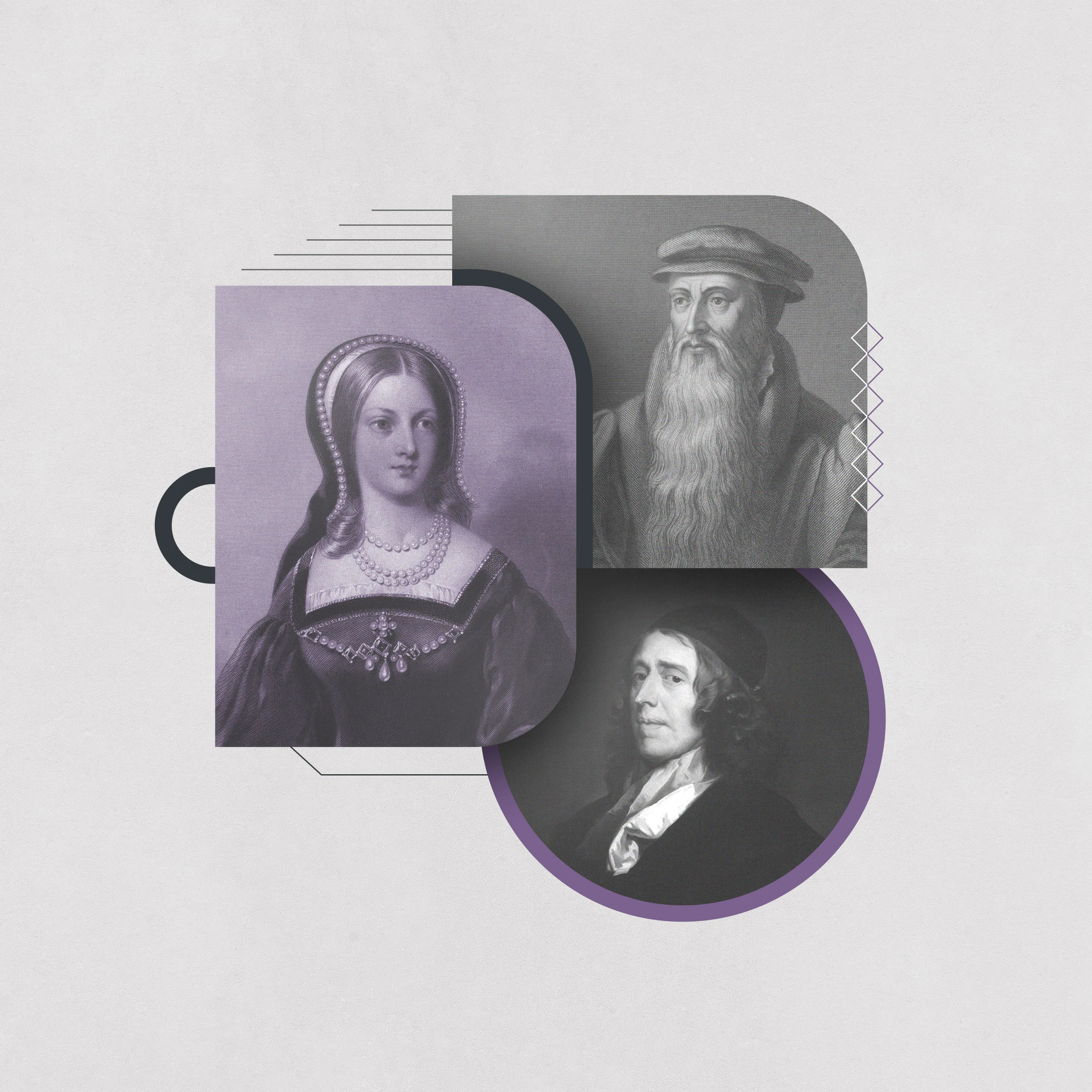Who Was Ebenezer Erskine?

The Reformed church has always emphasized the importance of preaching. It is preaching that God most ordinarily uses to save His people and to build them up in the faith. An example of the Reformed emphasis on preaching is found in the life and ministry of Ebenezer Erskine (1680–1754), an important Scottish Presbyterian theologian and preacher.
Ebenezer entered the ministry in 1703 as pastor of Portmoak, a village in central Scotland. While Erskine was laboring there, controversy emerged over a book titled The Marrow of Modern Divinity and what that book taught about the “free offer of the gospel.” The issue of the free offer of the gospel is simply this: Does a person have to meet any criteria in order for a minister to be able to tell him that there is salvation in Jesus if he will believe in Him? Some ministers within the Kirk (the Church of Scotland) argued that one had to show some level of repentance and faith to demonstrate that the Spirit was at work in him and thus to be able to have the gospel offered to him. These men judged that some claims in the book undermined these commitments, and they had the book condemned by the General Assembly of the Kirk in 1720.
Erskine viewed matters much differently. In Erskine’s opinion, in the eternal covenant of grace, God covenanted to save sinners. Therefore, all sinners could be told that if they believed in Jesus, there was life for them. Of course, only those who were God’s people would believe and come to Him, but the offer could be made to everyone. In fact, to restrict that offer was legalism and would require sinners to merit having the gospel offered to them. The gospel is not for sinners who “deserve” it; the gospel is a gracious gift for sinners who do not deserve it. In Erskine’s opinion, then, there was nothing condemnable about The Marrow of Modern Divinity. Jesus’ offer really is to everyone: “The one who comes to Me I will by no means cast out” (John 6:37, NKJV).
Eleven other ministers in the Kirk agreed with Erskine (among these were his brother, Ralph, and Thomas Boston), and they protested the Assembly’s condemnation of the Marrow. After a series of dense theological exchanges with commissions and courts of the church, Erskine and the Marrow’s other supporters were rebuked by the Assembly in 1722 and ordered never to recommend the Marrow again. From that point forward, Erskine and his Marrow brethren were viewed with suspicion within the Kirk.
In the early 1730s, two important events occurred. First, Erskine left his beloved congregation in Portmoak in 1731 to become a minister in the city of Stirling. Second, in 1732, the General Assembly passed an act titled Act anent (about)* the Planting of Vacant Churches*. Under the terms of this act, if a church was vacant (meaning that it needed a pastor) and there was disagreement between the congregation and the major landowner in the area over who that new pastor should be, the landowner (called the “patron”) could force the congregation to call the pastor whom the patron desired. In other words, the congregation did not have authority to call their own pastor. This system, known as patronage, had been present in the Church of Scotland for decades, but it seldom was enforced. The Act of 1732 changed that dramatically and brought patronage back in a powerful way. Many in the Kirk, Erskine among them, were incensed at this encroachment on the liberty of God’s people to discern the man whom God was calling to serve as their pastor. For a man to undertake the care of a congregation without the consent of that congregation was for him to come in as a “thief and a robber,” not as a “shepherd of the sheep” (John 10:1–2).
Reflecting on Ebenezer Erskine’s life and ministry serves as a reminder of the direness of sin, the wonder of God’s grace contained in the offer of the gospel, and the importance of preaching the full counsel of God’s Word.
Many ministers throughout the Kirk preached stringently against the act. In most cases, nothing came of this opposition. Such was not the case for Erskine. On October 10, 1732, Erskine preached on Psalm 118:22–23 before the Synod of Perth and Stirling, denouncing, among other things, the Act of 1732. When Erskine finished, the Synod demanded that he retract his sermon and consent never to preach similarly in the future. Erskine refused. Like so many other Scottish ministers before him, Erskine insisted that in the pulpit, he was free to preach against what he considered to be sin according to the Scriptures. The Lord, speaking in His Word, determined what Erskine and all other preachers could proclaim, not any other person or institution. In the pulpit, God’s Word was free, and His servants were free—in fact, they were constrained—to proclaim it.
Three other ministers in Erskine’s Synod agreed with his defense of pulpit freedom and, once again, a disciplinary procedure within the church courts ensued. As a result, on December 6, 1733, these four ministers met in the village of Gairney Bridge and formed the Associate Presbytery. These ministers were not leaving the Kirk, they still were “associate” with it; but since the General Assembly was preventing them from exercising their pastoral responsibilities, they were coming together to form a body, outside the Assembly’s authority, that would allow them the exercise of those duties. This arrangement did not last long, and in 1740 the General Assembly formally deposed the members of the Associate Presbytery from the office of the ministry. The Associate Presbytery was on its own. In the following decades, the Associate Presbytery became known as the evangelical face of the church in Scotland. The presbytery grew and expanded to become the Associate Synod, and it sent missionaries to the American colonies. Erskine served briefly as the synod’s professor of theology while continuing in his pastoral labors in Stirling.
Erskine experienced much controversy in his ministry. All that controversy was driven, in varying ways, by Erskine’s insistence that when a minister stands in the pulpit, he stands under a dual compulsion and freedom. As God’s messenger, the minister is under absolute compulsion to proclaim the truth of Scripture—grace in Christ Jesus and condemnation for sin—and in that compulsion, the minister knows absolute freedom. No man or institution can restrict or limit him in his exercise of the duty that God has entrusted to his charge. This ever has been the conviction of the Reformation and its heirs. The pulpit is the platform of the resurrected Christ and from that platform, His Word is proclaimed—nothing added, and nothing restrained.
Reflecting on Ebenezer Erskine’s life and ministry serves as a reminder of the direness of sin, the wonder of God’s grace contained in the offer of the gospel, and the importance of preaching the full counsel of God’s Word. As we seek to proclaim the gospel, do we offer salvation in Jesus only to those who meet certain “pre-conditions” of our expectations, or do we declare that all sinners who come to Jesus will find welcome with Him? Do we hear sin denounced as sin from our pulpits, even when authorities outside of that hallowed platform—whether governmental or societal—call for ministers to be silent and fall in line?
Perhaps Erskine’s greatest tribute came from Adam Gib, a minister who had exercised bitter ecclesiastical opposition to Erskine in his later years. Upon Ebenezer’s death, Gib discovered that another young minister had never heard Erskine preach. To that young minister, Gib lamented, “Well then, Sir, you never heard the gospel in its majesty.” May the majestic gospel of Jesus, so loved by Erskine, be proclaimed, heard, and treasured still today.
This article is part of the Historical Figures collection.


